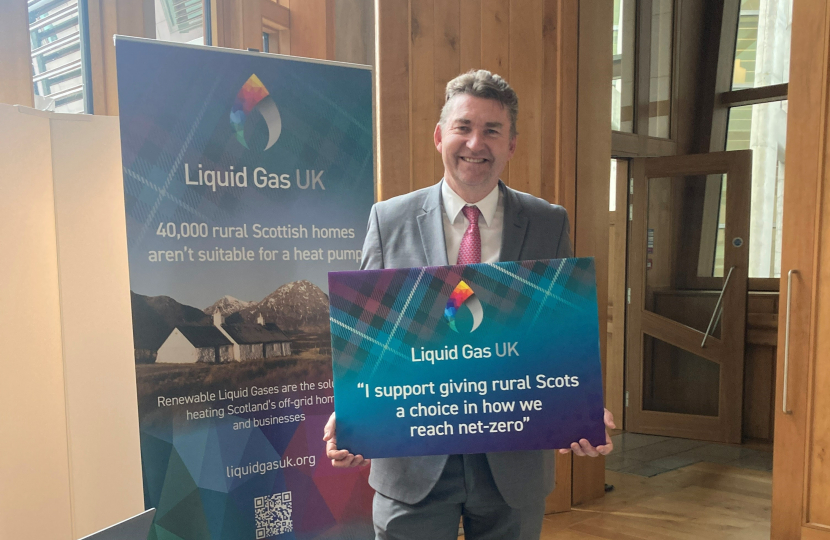
South Scotland MSP Brian Whittle has joined cross-party calls for rural and off-gas grid homeowners to be given a greater choice in how they decarbonise their homes.
Under plans proposed by the Scottish Government, off-grid homes currently using direct emissions heating systems – such as oil, LPG or solid fuel – will be unable to replace their heating system like-for-like from 2025. In East Ayrshire, around 10% of homes are not connected to the gas grid, while the figure in South Ayrshire is 17%, with areas like Dumfries & Galloway and South Lanarkshire having even higher numbers at 40% and 20% respectively.
Research shows that replacing such a system with an electric alternative, along with the required energy efficiency measures like insulation and double glazing, could cost between £15,000 - £30,000 for rural homeowners.
Polling, undertaken by Focal Data for Liquid Gas UK, reveals that over four in five off-grid Scottish homeowners - 83% - would be unable to afford the cost of installing a new electric heating system, raising concerns that proposals to ban other sources of heating will unfairly impact rural communities.
Brian Whittle MSP said:
“Electric systems such as heat pumps can work well in modern homes, but the cost of retrofitting an older, rural property is likely to be significant and many people may find it unaffordable.
There are also questions about how ready the electricity grid is for the increased demand from electric heating, and how people could keep themselves warm during power-cuts.
We need to make the transition away from carbon intensive heating sources to reach our net zero targets and protect ourselves from future spikes in oil and gas prices by switching to renewables, but that transition has to be done in a way that people can afford and recognises the different challenges faced by people living in more rural areas compared to their counterparts in bigger towns and cities.
It’s right that we encourage homeowners away from the dirtiest kinds of home heating but there’s still a real question about whether people can move to zero-carbon heating in one giant leap or whether they’ll need a low carbon stepping stone first.
The Scottish Government should work with Liquid Gas UK and other organisations looking at practical alternatives that can help us move closer to net-zero without leaving anyone behind or burdening them with huge personal bills.”
George Webb, Chief Executive of Liquid Gas UK, added:
“The Scottish Government needs to re-think its 2025 boiler ban for homes not connected to the gas grid to ensure we are offering rural communities a choice in how they decarbonise their homes.
“Renewable liquid gases are available today and offer a cost-effective way for customers to achieve up to 90% carbon emissions reductions using their existing boilers and appliances.”

